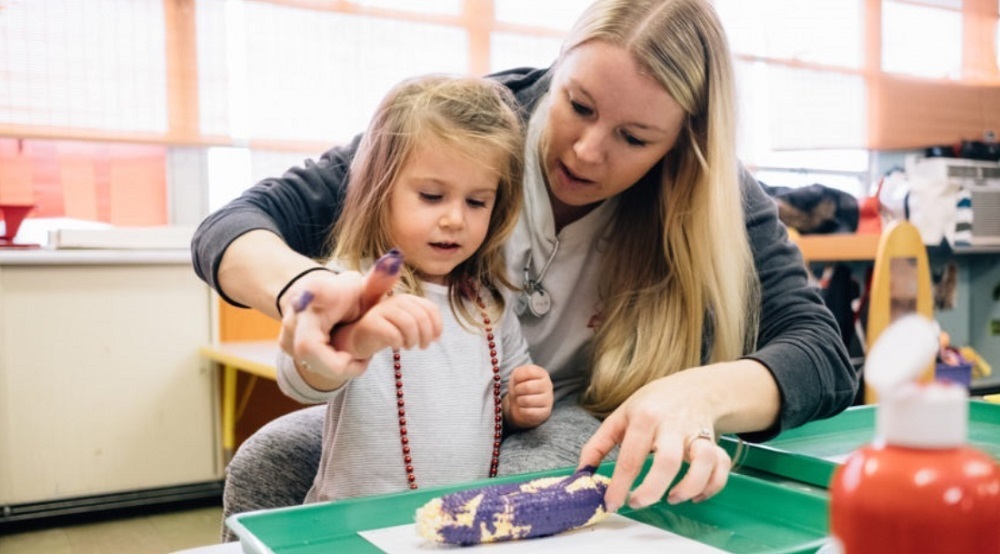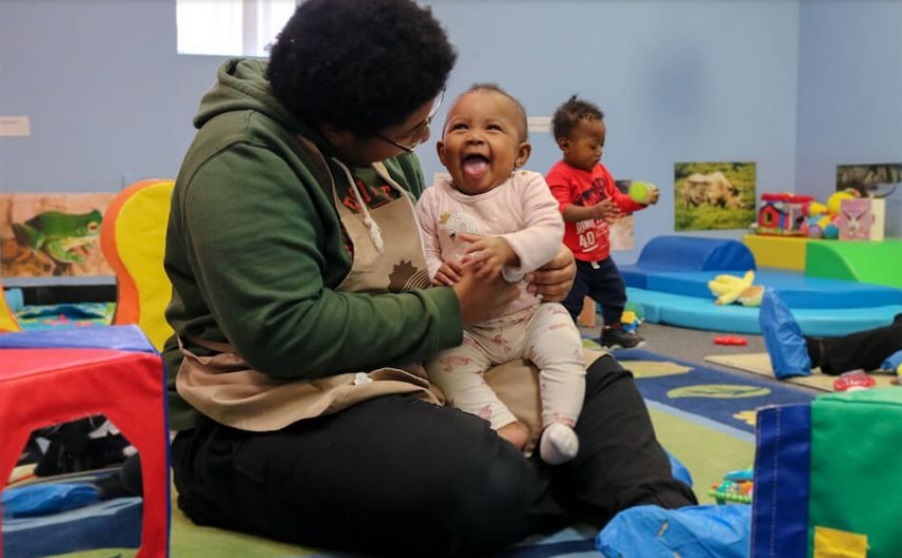
You are your child’s first teacher. A new video series from Trying Together supports your efforts
Photo courtesy of Trying Together.
A new video series from Trying Together emphasizes an aspect of child development that’s often overlooked: Moms, dads, grandparents and other caregivers start the educational process long before teachers and schools become involved.
Parenting Together Pathway, a video series created by the non-profit organization, features child development information that parents and caregivers can access at their leisure.
“We wanted to start to develop resources where we were taking science and research that’s based in early childhood development and learning,” says Maria Pisano, Trying Together’s director of communications, “and break that down so parents, families, relative providers, any caregiver of a young child, can really start to implement some of these practices into their everyday interaction.”

The video series, which can be accessed for free, concentrates on six areas of childhood development:
- The brain,
- The role of play,
- Everyday interactions,
- Technology,
- High-quality childcare,
- Becoming a child’s first advocate.
The increased popularity of mommy blogs, Facebook parenting groups and other internet content indicate parents are going online for information.
“Younger parents, I would imagine many of them are going online to search for resources,” Pisano says. “And I also think that people are interested in early childhood development and learning, as in recent years brain science has become more publicly shared and understood and known about the importance of the early years.”
The Parenting Together Pathway videos were created by a diverse group of Trying Together staff members with backgrounds in teaching, administration and social services. The information is delivered in direct, plain language without dumbing down the content.
“We wanted to make this information less jargony and more accessible and understandable for families,” Pisano says.
Here’s a breakdown of the six videos:
The Beautiful Brain: An examination of how kids’ brains develop. Topics include the impact of interactions, environments, and trauma on a child’s brain, and how brain development can be effectively supported through fun and engaging activities.
It’s More than Just Play: The Role of Play in a Child’s Life: An overview and discussion of various types of play, with kids and parents weighing in on what play means to them.
Everyday Interactions Matter: Noticing the simple and ordinary. A look at how kids and caregivers can learn from everyday interactions. Caregivers can learn how to recognize moments of connection, sharing, growth and belonging.
The Role of Technology in Caregiving and Caregiving Experiences: Technology plays an increasingly important role in caregiving. This presentation illustrates how technology can be a resource, and how it can be integrated into the lives of kids to support their daily routines.
How to Choose High-Quality Childcare: Finding good childcare can be complex and confusing. Topics examined here include assessing curriculum and physical environments, Pennsylvania’s early learning landscape, and family and community partnerships.
Becoming a Child’s First Advocate: Parents and caregivers will learn about advocating for kids through grassroots initiatives to government and social service agencies.